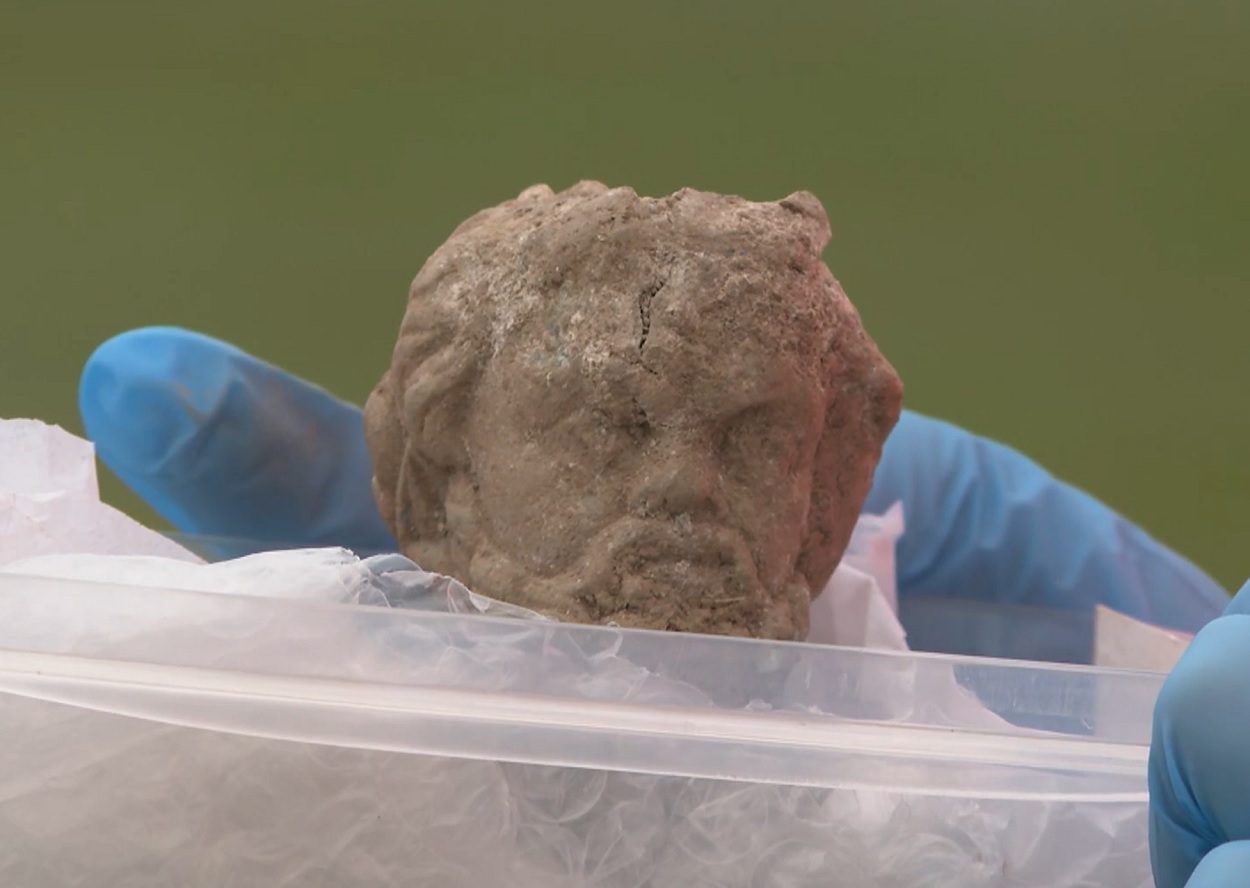Archaeologists excavating in Cockermouth, England, have uncovered a bust of Silenus, the Greek god of wine making.
In Greek mythology, Silenus was a companion and tutor to the wine god Dionysus, and is associated with wine making, musical creativity, prophetic ecstasy, drunken joy, and drunken dances.
Depictions of Silenus often portray him as being intoxicated and requiring the assistance from satyrs or a donkey to remain upright. Regarded as the eldest, most knowledgeable, and heavily inebriated among the devotees of Dionysus, Silenus was identified as the young god’s mentor in Orphic hymns.
The bust is a steelyard weight from the 1st century AD which was used to weigh items on a device called a steelyard balance. The device worked by using a counterweight (the steelyard weight) which slides along the longer arm to counterbalance the load and indicate an objects weight.
Speaking to ITV, finds officer, Julie Shoemark, said: “The size of the weight is definitely surprising. These weights usually tend to be a little bit smaller. I would say one in this condition and one depicting Silenus particularly is a little more unusual.”
According to Edward Dougherty from Northern Archaeological Associates Ltd, the area of Cockermouth in the Roman period during the 1st and 2nd century AD would have been a regional hub leading to forts on the Cumbrian cast such as nearby Burrow Walls Roman Fort and Alauna (Maryport).
Excavations also uncovered evidence of a Roman road that appears to be aligned towards a bridge crossing on the River Derwent, in addition to the foundations of what appears to be Roman house plots. Most of the ceramics recovered are Samian ware, a high-status pottery used in Roman Britain which was mainly made in the southern, central and eastern areas of Gaul (France).
Header Image Credit : ITV





